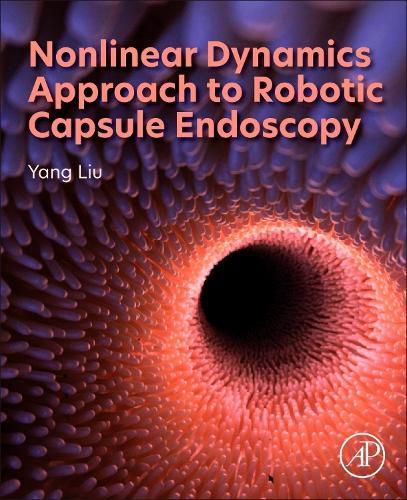Readings Newsletter
Become a Readings Member to make your shopping experience even easier.
Sign in or sign up for free!
You’re not far away from qualifying for FREE standard shipping within Australia
You’ve qualified for FREE standard shipping within Australia
The cart is loading…






Nonlinear Dynamics Approach to Robotic Capsule Endoscopy is an innovative resource that explores the development and progress of self-propelled capsule robots for medical use. This book guides readers from the initial conceptual stages to the final proof-of-concept demonstrations, with a special focus on applied dynamics principles. It introduces various mathematical modeling techniques that allow these robots to navigate and propel themselves within the human intestine. Researchers, professors, engineers, and postgraduate students alike will find this a crucial addition to their libraries.
The book's multidisciplinary approach ensures a thorough understanding of the subject, enabling the design of new driving technologies for capsule endoscopy. It combines theoretical foundations with practical insights, making it an invaluable resource for applied mathematics, robotics, and biomechanical engineering. The comprehensive coverage of this book provides guidance in designing and optimizing advanced medical devices, pushing the boundaries of current medical practices and advancing the field of capsule endoscopy.
$9.00 standard shipping within Australia
FREE standard shipping within Australia for orders over $100.00
Express & International shipping calculated at checkout
Nonlinear Dynamics Approach to Robotic Capsule Endoscopy is an innovative resource that explores the development and progress of self-propelled capsule robots for medical use. This book guides readers from the initial conceptual stages to the final proof-of-concept demonstrations, with a special focus on applied dynamics principles. It introduces various mathematical modeling techniques that allow these robots to navigate and propel themselves within the human intestine. Researchers, professors, engineers, and postgraduate students alike will find this a crucial addition to their libraries.
The book's multidisciplinary approach ensures a thorough understanding of the subject, enabling the design of new driving technologies for capsule endoscopy. It combines theoretical foundations with practical insights, making it an invaluable resource for applied mathematics, robotics, and biomechanical engineering. The comprehensive coverage of this book provides guidance in designing and optimizing advanced medical devices, pushing the boundaries of current medical practices and advancing the field of capsule endoscopy.